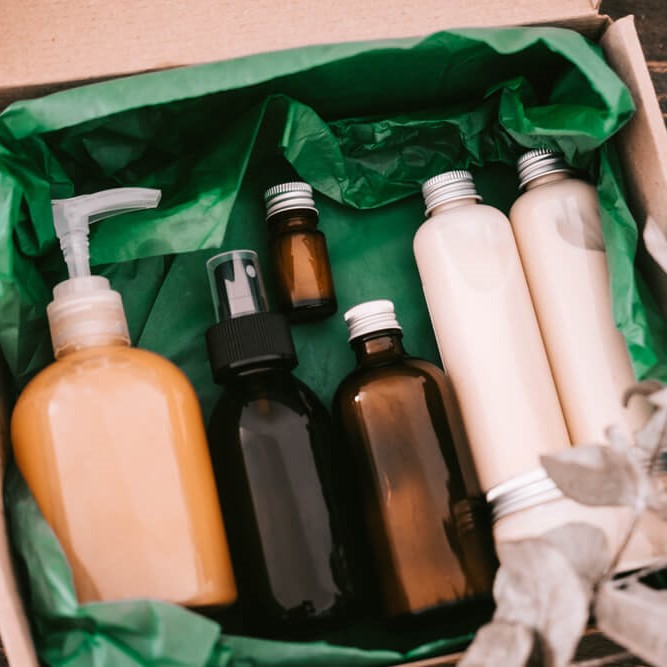If you’re new to private labeling, the actual process involved can seem quite secretive. Sure, you’re aware of how private labeling involves working with a third-party company, like FLPL, to create and manufacture your products for you, but what exactly are the steps involved in order for those finished products to end up in your hands?
Wonder no more – we’re about to demystify the private labeling process so that you can make an informed decision about whether or not private label manufacturing is the best move for your new brand.
It Starts With a Vision
Every successful business starts with a vision. This will act as your guiding light moving forward, helping to give your brand a direction and a purpose, while also making it easier to create long-term strategies.
While some people may have a detailed vision with a fully fleshed-out plan of action, this isn’t essential. Some private label manufacturers, like FLPL, can work with much less – sometimes, all you’ll need is a good idea, which you and your private label manufacturer can then build on.
Defining Your Vision
After having that initial great idea, you’ll need to make sure that there’s a need for it. After all, you don’t want to pour all of your money into creating a product line that nobody actually wants.
So, at this stage, you’ll need to research, research, and research some more. From market research to competitor research to product research, being thorough with your homework now will really pay off in the long run.
The Search for a Private Label Manufacturer

Now that you know a little more about what it is you want to create, it’s time to start searching for a private label manufacturer. Start your search by seeing which companies specialize in your chosen niche. Then, ask the following questions:
- What types of products will you be able to create?
- What’s the average turnaround time?
- Will they help you with packaging and product labels?
- Will they help with legal compliance?
- Do they provide any other services, in addition to manufacturing?
- What are their minimum order quantities?
- What sort of costs will you be looking at?
- Which brands have they worked with in the past?
You’ll soon be able to narrow down your many options and find a private label manufacturer who meets all of your criteria.
Choosing Your Product Line and Formulations
Once you’ve explained your vision to your private label manufacturer and are certain that everyone is on the same page, you can start thinking about the product line you want to build.
Are you going to be creating a full collection? While a range of complementary products can be useful to have, all of those products could be overwhelming at the start. Alternatively, you could opt for just a few hero products, such as a couple of super-powerful face serums instead of an entire skincare collection. Pick products that really represent what your brand stands for, and this could help you to make a name for yourself.
After choosing your product types, you’ll move on to creating formulations. This is when the experience of your private label manufacturer will really start to shine. Pick and choose the ingredients that you want to include in your products, and your private label manufacturer will put together cohesive formulas.
Deciding on a Manufacturing Location
Some private label manufacturers will give you the option of choosing where your products are manufactured. At FLPL, that choice lies between the USA and Asia.
This may initially seem like an easy decision. Surely you would simply pick the cheapest option? Not necessarily. It all depends on your target audience. Some consumers place value on locally produced products. While this manufacturing option may be costlier for the brand, consumers tend to be willing to pay a higher price for this luxury.
Take your market research into account when deciding on a manufacturing location. Speak to your target audience to find out their thoughts so that you can make an informed decision.
Legal Considerations

No matter which industry you may be moving into, there will always be legalities and regulations to consider. It goes without saying that you’ll want to err on the right side of the law, meaning that legal considerations need to be taken, right from when you start creating your formulations.
The good news? With a good private label manufacturer, you won’t need to worry about this too much. At FLPL, we take care of the legal aspect for our clients, ensuring that everything we produce for them is above board and compliant with international standards.
Testing Samples
Before you know it, your private label manufacturer will have your first product samples ready for you. At this point, you’ll need to hit the ground running once again in terms of research. Not only should you test out the samples you receive, but you should also make sure that your target audience tries them too.
Once you’ve had some feedback, you then report back to your private label manufacturer about any tweaks you want to make. It’s much better to make changes at this early stage, as opposed to once you’ve ordered thousands of pieces of that product!
Confirming Order Numbers
Once you’re happy with your samples, you’ll then need to confirm your order numbers. Most private label manufacturers have a minimum order quantity. At FLPL, it’s 5000 pieces. You won’t be able to order any less than this.
However, some new brands choose to take a risk and order more. Why? Because, usually, the more you order, the more cost-effective it will be. If you’re confident that you have a big seller on your hands, ordering larger amounts of stock for a lower price per item will increase your overall profit margin.
Developing Branding
By this point, you should already have a good idea as to what your brand is all about. Now is the time to refine that and create some solid branding. This is an area worth spending time on – branding directly impacts sales and growth. Strike gold and create an emotional connection with your branding, and you could see a customer lifetime value that’s 306% higher than what generic branding would have brought about.
Of course, this is much easier said than done. If you’re competing against any large brands, you’ll be up against award-winning marketing teams. This is why, earlier, we recommended checking whether your private label manufacturer offers any additional services. At FLPL, for example, we can help with branding. Work with us, and you’ll have your own art and branding team at your disposal, making it easier to compete with the big names.
Creating Packaging

Packaging is important for a few reasons. Firstly, if you plan on selling from a physical location, your packaging is what will initially draw new customers in.
If you plan on solely selling online, then functionality is crucial. Your packaging needs to be able to get your product from A to B without any harm coming to it.
Most private label manufacturers will have packaging options, meaning that you can work on this together. Some, like FLPL, will go the extra mile when it comes to melding your branding and your packaging, so that your packaging ends up being a true mirror of your brand’s values.
Setting Your Prices
Something else you’ll need to consider before you can start selling your products is pricing. Hopefully, you’ll already have some idea as to the pricing strategies you want to implement. Will you be aiming for the mass market with budget-friendly products, or do you plan on going exclusive and high-end?
Either way, make sure that you take all of your costs into account, leaving a margin for potential costs that are yet to arise.
Establishing Sales Channels and Fulfilment Strategies
What happens once your private label products are ready at the factory? Again, you won’t need to stress about shipping. This is something that your private label manufacturer will handle. If your products have been manufactured overseas, they’ll take care of any import and customs paperwork and fees as well.
However, you’ll still need to have an address for your products to be sent to. This means establishing warehousing of some sort. When considering your options, think about how your products are going to be fulfilled. A third-party fulfilment company could help to take some stress off your shoulders, but it means handing control of an important part of your business over to someone else. Just like when it comes to deciding whether or not private labeling is right for your business, this is something else to think about seriously.
Launching and Scaling
While you may initially assume that your private labeling journey ends once you have your products in your hands, this isn’t often the case. Instead, if you’re successful, which a good private label manufacturer will ensure you are, you’ll soon need to start thinking about scaling up. This will mean returning to your private label manufacturer so that you can produce a new selection of products!
At this point, the entire process starts again. However, this time, it’s streamlined. Your private label manufacturer will already know you, your brand, and your goals. Creating new products that are in line with this will occur much faster, which is something that gives private label brands a huge advantage overall, especially in a competitive market.
Go From Vision to Product With FLPL’s Private Labeling Services
Hopefully, this helps to clear up what the private labeling process involves. Yes, there are many steps that need to be taken, but for the majority of them, you won’t be alone. You’ll have your private labeling manufacturer by your side – you’ll be able to lean on their experience and expertise, giving you a knowledgeable partner that will help you take your business to success!
Click here to contact FLPL and find out more about our private labeling services.



